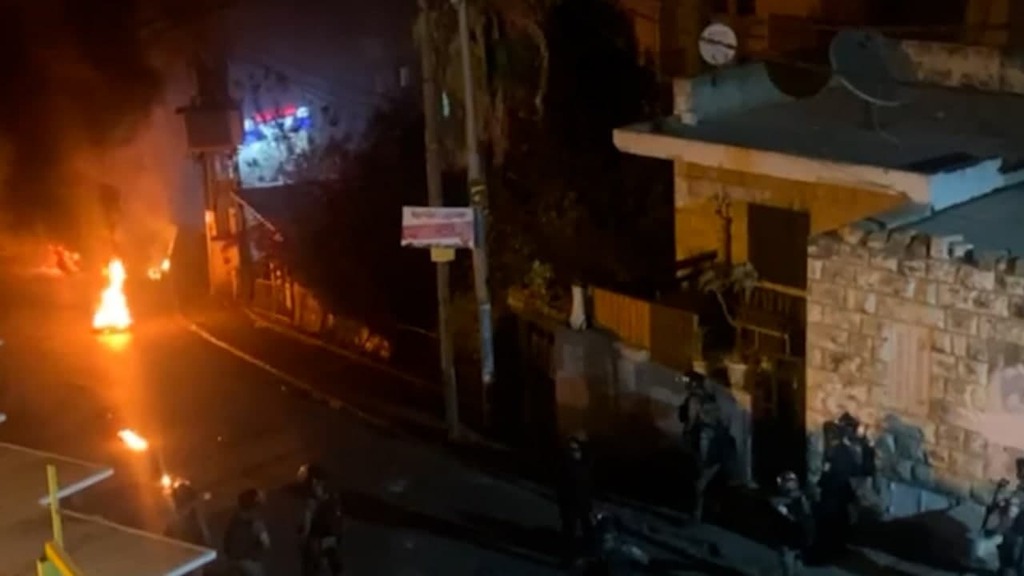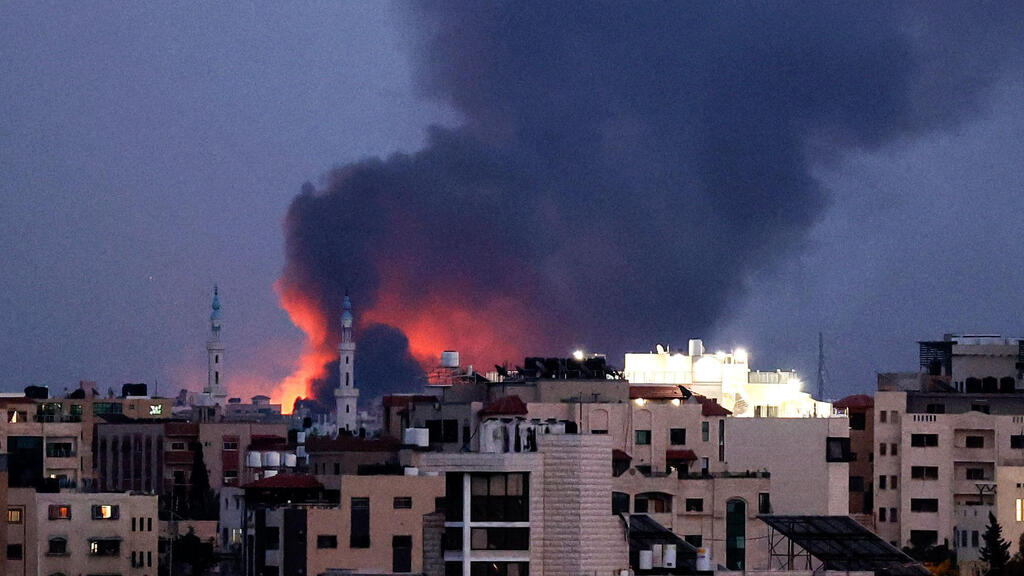An attack in Jerusalem, which killed one Israeli and wounded four others, has once again led to an increase in tension in the city and threatens to ignite further turmoil.
The Palestinian attacker, who was a member of Hamas, a resident of Jerusalem, a high school teacher of Islamic law in the city and a preacher in local mosques, was killed by Israel security forces during Sunday’s attack.
6 View gallery
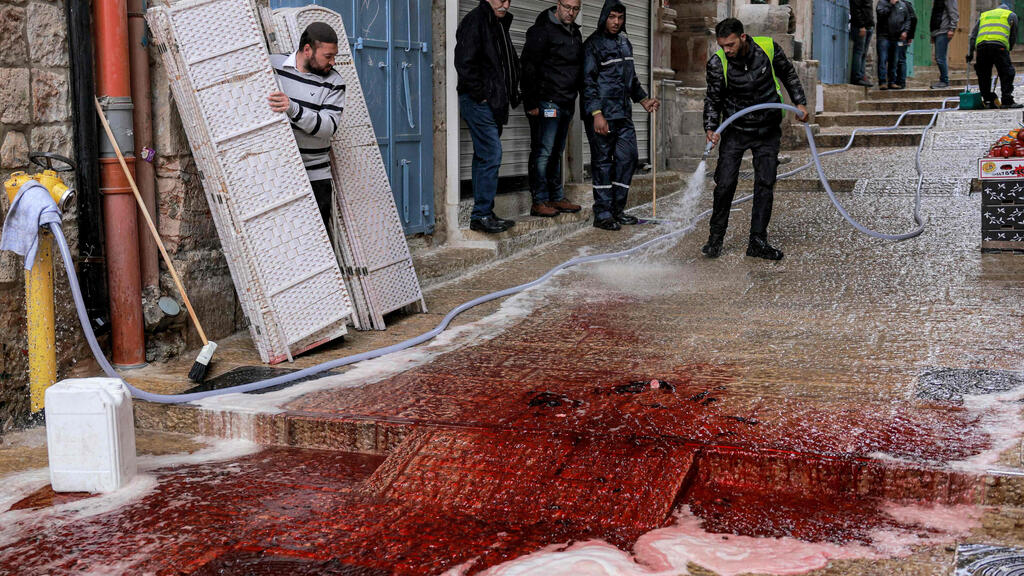

Municipal workers wash away blood for the site of the fatal terror attack in Jerusalem on Sunday
(Photo: AFP)
The shooting was carried out in the Old City of Jerusalem adjacent to the Western Wall and the entrance to the Al-Aqsa Mosque, holy sites which have become the focal point in the Israel-Palestinian conflict.
In recent weeks, there have been several incidents in the area. Last week, a Palestinian teenager stabbed and injured two Israel Border Police officers and was shot dead during the attack.
“We need to be on heightened alert and prevent future attacks,” said Prime Minister Naftali Bennett at the opening of the weekly cabinet meeting in Jerusalem on Sunday, just minutes after the attack.
The nights in Jerusalem also have become violent. Clashes between Israeli security forces and Palestinian youth are frequent. According to the Israel Police, there has been an uptick in recent weeks in rioting and demonstrations, during which Palestinian rioters throw stones, Molotov cocktails and fireworks.
Palestinians have accused Israeli security forces of using excessive force to quell the unrest, both in the West Bank and in Jerusalem.
United Nations data shows a sharp increase in Palestinian fatalities in the West Bank and Jerusalem in 2021, compared to previous years. So far, 76 Palestinians have been in killed by live ammunition in those areas during protests, clashes and military raids.
Hours after the attack on Sunday, hundreds of Palestinians took to the streets of the Shuafat refugee camp in east Jerusalem to march toward the home of the dead assailant. Footage on social media showed many of the demonstrators carrying green Hamas flags and chanting pro-Hamas slogans in a show of force in support of the militant organization. This is cause for concern not only for Israeli authorities, but also for the Fatah-ruled Palestinian Authority (PA).
6 View gallery
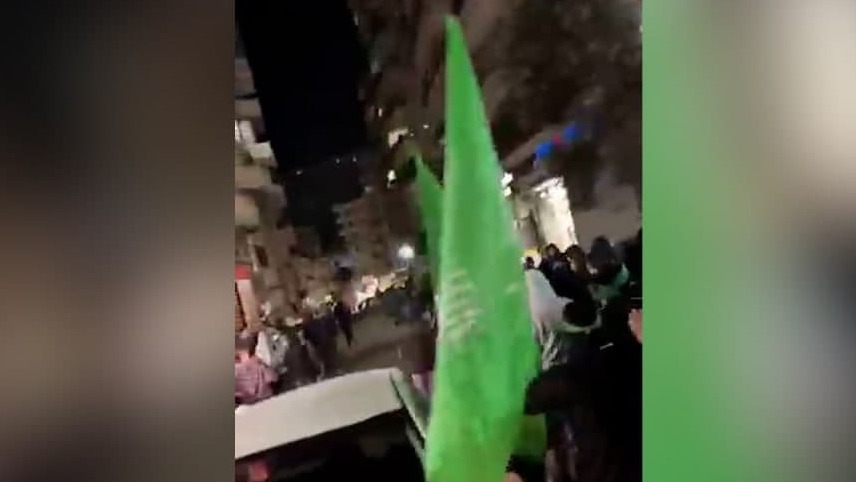

Hamas flags during a Palestinian march after the fatal terrorist attack in Jerusalem on Sunday
Jerusalem is at the core of the Arab-Israeli conflict. For decades, the warring sides had declared that the holy city’s final status was to be determined through negotiations. But with peace talks stalled for years and reality on the ground dictating otherwise, the problem in the contentious city is nowhere near being solved.
Israel captured east Jerusalem from Jordan during the 1967 Six-Day War. The majority of the international community does not recognize Jerusalem as Israel’s capital.
Jews born in east Jerusalem are granted full citizenship, while Arabs are residents without voting rights in Israel. This discriminatory policy has been at the heart of the conflict in the city, fueling the tensions and making it one of the most contentious areas in the world.
Palestinians see east Jerusalem as the capital of their future state. Israelis see both sides of the city as their eternal capital.
Jerusalem is also now an arena where rival Palestinian factions are fighting with each other for control.
In May, tensions in the city spilled over into a larger conflict which saw 11 days of cross-border fighting between Israel and Hamas in the Gaza Strip. Since then, a delicate cease-fire has been maintained, but under the surface Jerusalem is still bubbling dangerously.
6 View gallery
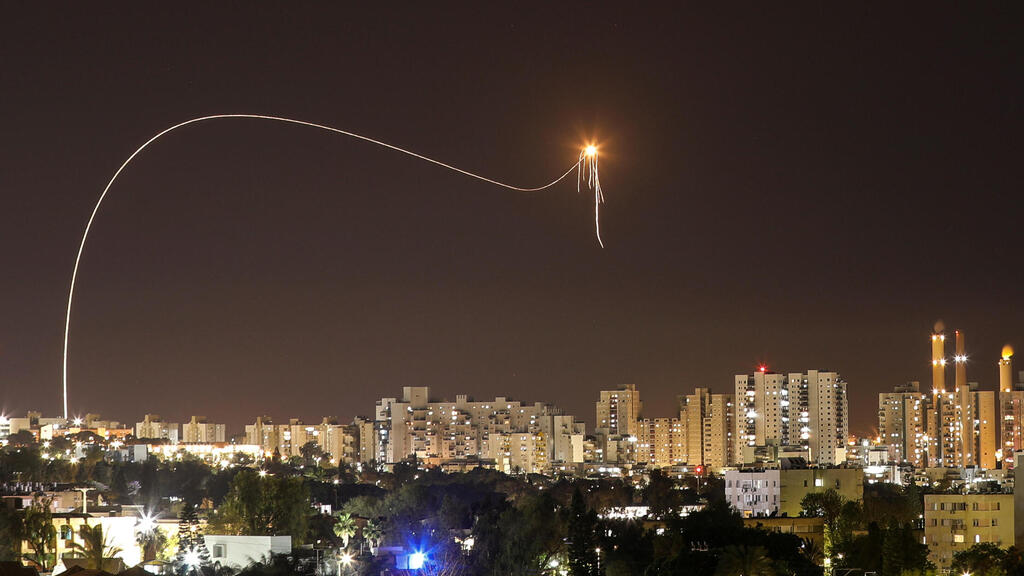

Iron Dome intercepts rocket from Gaza over Ashkelon during May fighting
(Photo: Reuters)
“The war saw the birth of a new reality, in which the Islamist factions are increasingly strengthening,” Dr. Dikla Cohen, of The Harry S. Truman Research Institute for The Advancement of Peace and the Department of Islamic and Middle Eastern Studies at the Hebrew University of Jerusalem, said of the May conflict. “The incitement against both the PA and Israel is increasing and Hamas is much more audacious,” she added.
The Gaza conflict positioned Hamas as the protector of Jerusalem. In addition, Hamas’ success in postponing the evictions of Palestinian residents of a neighborhood in east Jerusalem and causing the Israel Police to rescind security measures surrounding the al-Aqsa Mosque by launching massive rocket barrages into Israel helped increase its popularity among the Palestinian public.
“The war was a culmination of Hamas rethinking its role in Palestinian politics,” said Dr. Tahani Mustafa, a West Bank analyst at the International Crisis Group, “The movement is trying to actively reassert itself so that it is no longer confined to just Gaza and no longer using its resources just for the case of Gaza. This has cemented the organization within the Palestinian political arena.”
The gradual erosion in the legitimacy of Palestinian Authority President Mahmoud Abbas, who heads the Fatah party, has helped Hamas solidify its position among the public. Increasing discontent with Abbas and the PA and the growing friction between Israeli forces and Palestinians as demonstrated by the UN data, has given Hamas elevated status.
In recent weeks, in an attempt to curb Hamas influence in the West Bank, the PA has arrested tens of Hamas members. It’s hands-off for the PA in Jerusalem, where the Palestinian residents hold Israeli ID cards.
On its official website, Hamas called Sunday’s attack in Jerusalem “heroic,” saying it “carries a warning message to the criminal occupation to stop its aggression and arrogance practiced against our Palestinian land.” Hamas sees itself as protecting Jerusalem where the PA cannot or will not take the risk in confronting Israel by doing so.
6 View gallery
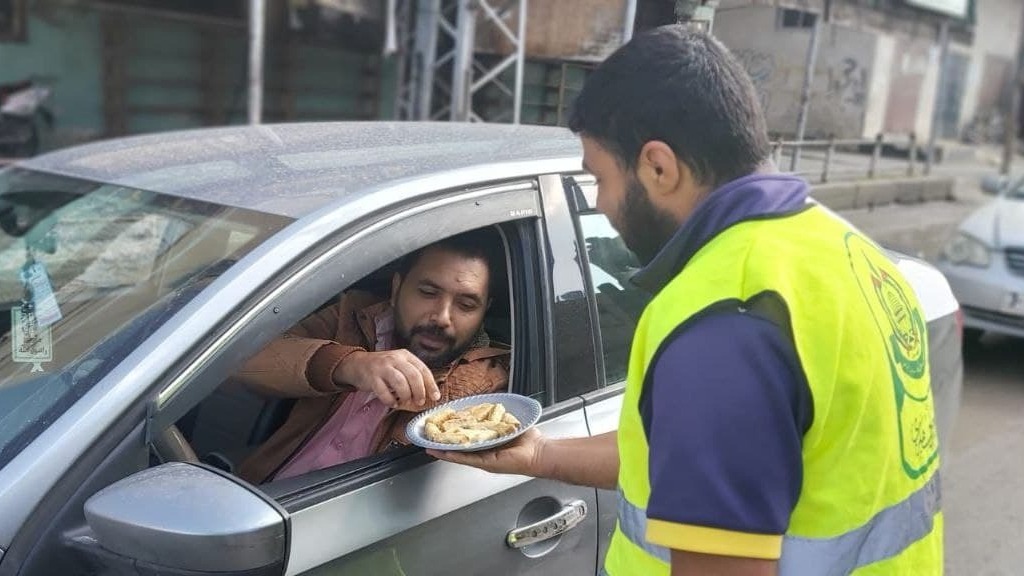

Hamas member hands out sweets to passersby in Gaza, to celebrate fatal the fatal Jerusalem terror attack on Sunday
“Jerusalem is different than other areas,” said Mustafa. “Jerusalem has bigger significance, not just national, but a religious meaning.”
Since 1967, Israel has allowed Jordan to maintain administrative power over the Al-Aqsa Mosque and its immediate surroundings. For years, Israeli authorities seldom allowed Jews to visit the mosque area and do not allow non-Muslim prayer there, maintaining a delicate status quo.
This policy has been quietly changed recently, with a trickle of Jewish worshippers being allowed to pray near the Muslim holy site, angering many Muslims. In the build-up to the conflict in May, Israel had tried to restrict the movement of Palestinian worshippers and limit large gatherings in the Old City.
“It will be difficult to see Hamas, as a self-proclaimed Islamist resistance movement, not doing anything in response,” Mustafa added.
“We assure that the occupation crimes will not remain without a deterrent response,” according to a Hamas statement issued after the attack.
The last round of major violence in May saw the linkage between Jerusalem and Gaza. Neither Israel nor Hamas are interested in an escalation in Gaza right now. The spiraling nature of the conflict, however, does not guarantee this will not happen.
“Hamas is playing a dangerous game,” said Cohen. “It is looking to separate by supporting terror attacks in Jerusalem and the West Bank while maintaining the quiet in Gaza. Hamas does not want to risk the stability of its regime in Gaza but, as an opposition to the PA in the West Bank, it has a lot less to lose.”
Over 250 Palestinians were killed in Gaza as a result of the Israeli offensive in May. Major damage caused by airstrikes has left the already impoverished territory still trying to rehabilitate.
“Another escapade for Hamas in Gaza could be detrimental for the organization,” Cohen added.
But it might be inevitable.
“We are seeing violent implications, which will only lead to further violence and possibly another cross-border conflict,” said Mustafa. “What we saw a few months ago in the build-up to the war, we are seeing now in a similar fashion. The catalysts for the May conflict are present again now.”
Article written by Keren Setton. Reprinted with permission from The Media Line


